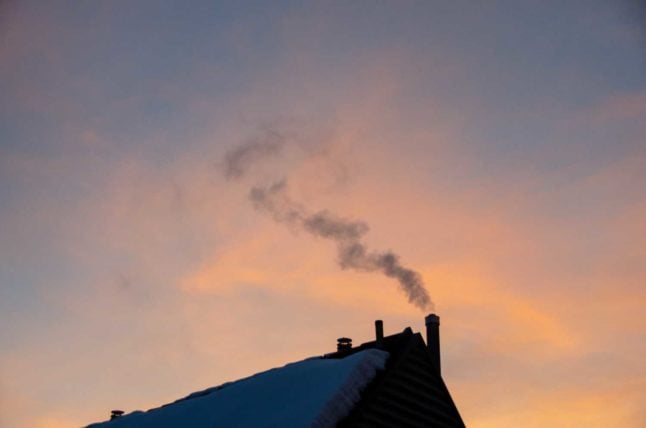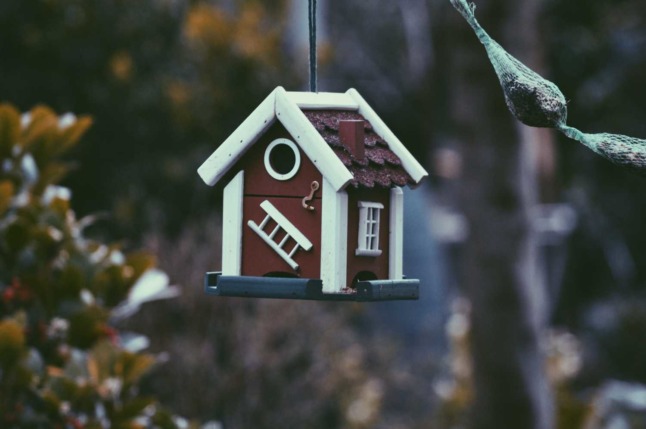When paying your rent in Switzerland, you may be liable for a range of additional or associated costs in addition to your actual rent.
If you’ve just arrived in Switzerland, many of the costs will be known to you, while some others might be surprising.
These can include everything from heating and electricity costs, to less common fees for caretakers or doormen.
While you will be liable for many of the costs yourself, some of them will be the responsibility of the landlord.
For a more comprehensive breakdown of which costs are the responsibility of the tenant and which for the landlord, check out the following link.
Tenant or landlord: Who pays which costs in Switzerland?
How do rent and other costs work in Switzerland?
In Switzerland you will pay your landlord two types of costs associated with the flat.
The first is the straight rent on the apartment or house. The second is a list of associated or ancillary costs.
In German these are known as Nebenkosten, in French as frais accessoir and in Italian as costi aggiuntivi.
These can include: heating, hot water, electricity in common areas, snow removal, garden maintenance, parking, lifts and stairwell, sweeping and cleaning common areas, laundry room costs, cable TV/TV costs, water, sewage and caretaker fees.
Some bills will have up to 15 different line-items.
Note that ‘associated costs’ do not include other costs associated with renting that a tenant will be liable for, such as internet, phone or electricity. Generally speaking, these will be paid separately by the tenant and will not be a part of the rental charge, although in certain instances (i.e. student accommodation) they may be included.
How much are these costs?
The amount you pay for utilities can vary widely depending on all sorts of factors including where you live, what kind of house you have, how many people live there and how you use the apartment.
The costs are worked out on the basis of what the average tenant would use, i.e. on the basis of other flats in the building and perhaps on the basis of the amount the previous tenant paid in this apartment.
If you use the heating more than the average tenant – which is a possibility if you come from a tropical country – or if it has snowed a lot more than usual, then your costs might be higher.
Therefore, you should not bank on getting a refund at the end of the year, even if you have gotten a refund in the past.
EXPLAINED: Can I rent my apartment on Airbnb in Zurich and what are the rules?
How are these costs charged?
Given that there are so many of these potential costs and that they may vary unpredictably, for instance on the basis of weather or water usage, these costs are rarely charged individually.
Instead, you will pay a flat rate from which these costs are deducted, usually as a component of your monthly rent.
At the end of the year, you will receive a notification as to whether your actual costs have exceeded that amount.
Generally speaking you will receive a credit, which can be paid out or kept in your rental account (Akontozahlung).
Otherwise, tenants can pay a lump sum payment (Pauschalzahlung) of the total costs when they are apparent.
If you live in an apartment block with several other flats, the costs must be split evenly between tenants. This will usually be a percentage of the total costs.
Finding a flat in Switzerland: How to stand out from the crowd
What are some common ‘hidden costs’ associated with renting a flat?
Once you’ve gotten your head around the way associated costs are charged, you may want to look at what exactly you are paying when it comes to associated costs.
Technically speaking, there should be no hidden costs associated with renting in Switzerland (although some costs are surprising or are calculated in a surprising way and these will be discussed below).
An important aspect of Swiss tenancy law is that while tenants may be liable for a range of costs as ‘associated costs’, these must be clearly laid out – otherwise there is no obligation to pay.
The Swiss Tenants Association notes that a line item like “other operating costs” is not permitted and therefore does not have to be paid by the tenant.
Therefore, your landlord is not allowed to hide costs at all in the tenancy agreement. Any attempt to hide “other operating costs” in the tenancy agreement will be contrary to Swiss law.
As you might want to keep on good terms with your landlord, the best approach will be to ask for an explanation of what these costs are.
Your landlord must show you receipts for costs if you ask them.
READ MORE: What damage do tenants have to pay for in Switzerland?
Communal costs
If you live in an apartment building or a block of flats, a central part of the associated costs you will pay relate to the use of common areas.
Obviously, someone needs to pay for the electricity used to make the lift go up and down, keep the lights on in the hallway or throw rocks or salt in the courtyard when the snow comes.
It would be impractical to make each person pay for this directly, therefore this will usually be split between all tenants.
Keep in mind that Swiss apartment blocks tend to have a communal mindset, meaning that you won’t have much of a choice as to what you pay and what you don’t.
For instance if you hate grass and never set foot in the garden, you will still need to pay the same share of the garden maintenance fees as the old orange Swiss man who sits there every sunny day drinking cans of Quöllfrisch.
Fortunately however these costs tend to be relatively low (and might even be an incentive to pull up a chair next to him).
Heating
One major hidden cost that can surprise people when they get their first bill (usually in autumn each year) relates to heating.
Heating costs are not calculated purely on how much you use your heater, but they usually include a basic tariff and a cost share with others in your apartment building.

As heat rises and is shared throughout the building, the costs are partially split between renters.
It is not unusual to have a situation where someone might have not used their heating over winter – for instance because it was broken, because they were not there or because they just don’t like being warm – but will receive a bill.
Given that this is common practice across Switzerland, you will not be able to challenge this if you did not use the heating.
Therefore, keep in mind that part of your cost will be related to what you have used and part will be related to what was used in the flat.
EXPLAINED: The hidden costs of buying a home in Switzerland
Yearly changes
Also keep in mind that as the rental contract is the foundation for the costs, the specific line items cannot be changed year to year without consent from the tenant.
Therefore if you see a new line item – i.e. ‘caretaker charges’ – which did not appear in previous years, this has been changed without your consent and you don’t have to pay.
In the event of any disputes, the best approach is to engage in a dialogue with your landlord first, although contacting the tenants association or going to arbitration are options you could consider further down the line.
Costs of Christmas past
At the end of the tenancy year period – which is most often the calendar year or from July to June – you will receive either a credit or a bill which covers all your associated costs.
This can get a little complicated when bills are calculated over a different period, for instance at a cantonal level, but generally speaking you will pay up for what you owe at the end of the annual tenancy period.
Under Swiss law however ancillary costs do not expire for five years, meaning that it is possible you receive a bill for costs from several years ago.
This is relatively rare and some cantons like Bern and Luzern have taken steps to shorten the period – while some contracts also expressly provide for a shorter period – but it is something to keep in mind.



 Please whitelist us to continue reading.
Please whitelist us to continue reading.
Member comments